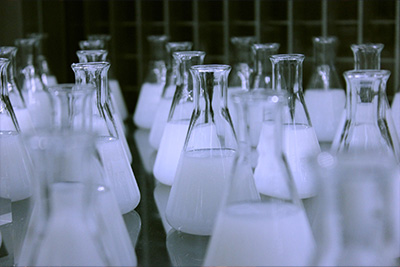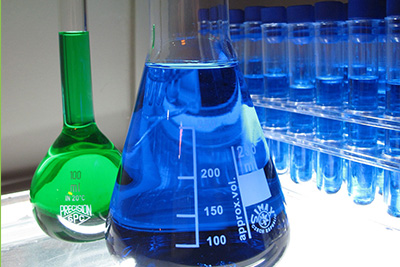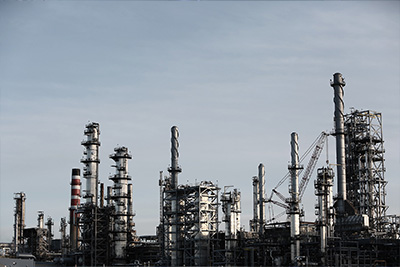-
![Dimethyltin Dichlo···]() 2025-01-07 Dimethyltin Dichloride in Organotin ···
2025-01-07 Dimethyltin Dichloride in Organotin ···Dimethyltin dichloride is an important organotin compound utilized in various industrial reactions. It serves as a key intermediate for synthesizing other organotin compounds, such as stabilizers for polyvinyl chloride (PVC) in the plastics industry. Additionally, it finds applications in agriculture as a fungicide and in chemical synthesis for producing agricultural chemicals and biocides. The compound's reactivity allows for versatile applications, including catalysis in organic synthesis and modification of materials. Its industrial uses highlight its significance in both chemical manufacturing and practical applications.
read more > -
![2-Ethylhexyl Thiog···]() 2025-01-07 2-Ethylhexyl Thioglycolate: An Overv···
2025-01-07 2-Ethylhexyl Thioglycolate: An Overv···2-Ethylhexyl thioglycolate is a versatile compound with significant applications in both industry and pharmaceuticals. Industrially, it serves as a key component in the production of plasticizers and lubricants due to its ability to enhance flexibility and reduce friction. In the pharmaceutical sector, it exhibits potential as a stabilizer and antioxidant, contributing to the efficacy and shelf-life of medications. This comprehensive guide explores its chemical properties, synthesis methods, and diverse applications across various fields, providing an in-depth analysis for researchers and practitioners alike.
read more > -
![Di-n-Butyltin Oxid···]() 2025-01-07 Di-n-Butyltin Oxide (DBTO) in the Pr···
2025-01-07 Di-n-Butyltin Oxide (DBTO) in the Pr···Di-n-Butyltin Oxide (DBTO) is widely utilized in the production of plastic additives, primarily as a heat stabilizer and catalyst. It enhances the durability and performance of plastics under high temperatures, ensuring longer product life spans. However, DBTO poses certain health risks, including respiratory issues and skin irritation. Therefore, strict safety measures are essential during its handling and manufacturing processes. Proper ventilation, personal protective equipment, and adherence to regulatory guidelines are crucial to minimize exposure and ensure a safe working environment.
read more > -
![Dibutyl Tin Dilaur···]() 2025-01-07 Dibutyl Tin Dilaurate in the Synthes···
2025-01-07 Dibutyl Tin Dilaurate in the Synthes···Dibutyl tin dilaurate (DBTDL) is widely utilized in polymer synthesis due to its effectiveness as a catalyst. This organotin compound significantly enhances the properties of polymers by accelerating reaction rates and improving molecular weight distribution. DBTDL facilitates the formation of high-quality polymers with superior thermal stability, mechanical strength, and durability. Its use in various polymerization processes, such as polyurethane and polyester synthesis, demonstrates its versatility and efficacy. Overall, DBTDL plays a crucial role in achieving optimal polymer characteristics, making it an indispensable component in modern polymer technology.
read more > -
![n-Butyltris(2-ethy···]() 2025-01-07 n-Butyltris(2-ethylhexanoate) as a S···
2025-01-07 n-Butyltris(2-ethylhexanoate) as a S···The use of n-Butyltris(2-ethylhexanoate) as a stabilizer in coatings and paints enhances product performance by preventing degradation from environmental factors. This chemical compound acts effectively against UV radiation, heat, and oxidation, ensuring longer lifespan and improved durability of the coated materials. Its unique formulation provides better compatibility with various resin systems, leading to enhanced film formation and adhesion properties. This stabilizer is particularly useful in applications requiring high resistance to weathering and thermal stress, making it an invaluable component in advanced coating technologies.
read more > -
![Tetra Butyltin in ···]() 2025-01-07 Tetra Butyltin in Organotin Synthesi···
2025-01-07 Tetra Butyltin in Organotin Synthesi···Tetra butyltin plays a crucial role in organotin synthesis, widely utilized in various industrial applications due to its unique chemical properties. However, its use is not without challenges, including environmental concerns and health risks associated with toxicity. This article explores the diverse applications of tetra butyltin in industries such as agriculture, plastics, and coatings, while also addressing the significant hurdles that need to be overcome to ensure safer and more sustainable usage.
read more > -
![Tri-n-butyltin Hyd···]() 2025-01-07 Tri-n-butyltin Hydride: Properties a···
2025-01-07 Tri-n-butyltin Hydride: Properties a···Tri-n-butyltin hydride (TBT-H) is a chemical compound with the formula (C4H9)3SnH. It is primarily used in organic synthesis as a reducing agent. TBT-H is characterized by its reactivity, which can lead to hazardous situations if not handled properly. The compound is highly toxic and can cause skin and eye irritation, and prolonged exposure may result in organ damage. Proper personal protective equipment (PPE), including gloves, goggles, and respirators, should be worn when handling TBT-H. Adequate ventilation is essential, and spills should be managed carefully using appropriate absorbent materials. Understanding these key safety considerations is crucial for safe use of TBT-H in laboratory settings.
read more > -
![O-Isopropyl Ethylt···]() 2025-01-07 O-Isopropyl Ethylthiocarbamate in Ag···
2025-01-07 O-Isopropyl Ethylthiocarbamate in Ag···O-Isopropyl ethylthiocarbamate is a chemical compound used extensively in agricultural applications for pest control. It functions as a herbicide and insecticide, effectively managing weeds and pests that threaten crop yields. This compound works by inhibiting specific enzymes in plants and insects, thereby disrupting their growth and survival. Its application helps farmers maintain crop health and increase productivity. However, it's crucial to use this chemical with caution due to potential environmental impacts and health risks if not handled properly. Research continues on optimizing its usage and exploring safer alternatives.
read more > -
![Dimethyltin Dichlo···]() 2025-01-07 Dimethyltin Dichloride: Use in Catal···
2025-01-07 Dimethyltin Dichloride: Use in Catal···Dimethyltin dichloride (DMTC) is a versatile organotin compound widely used in various industrial processes, particularly in catalysis. Its unique chemical properties enable it to function effectively as a catalyst in polymerization reactions and organic synthesis. DMTC also finds applications in the production of agrochemicals and pharmaceuticals due to its reactivity with a range of substrates. Additionally, it is utilized in the modification of materials for improved performance in electronic and optical devices. Despite its benefits, careful handling is required due to potential health and environmental impacts. Overall, DMTC's adaptability across multiple sectors highlights its significance in modern industrial chemistry.
read more >







